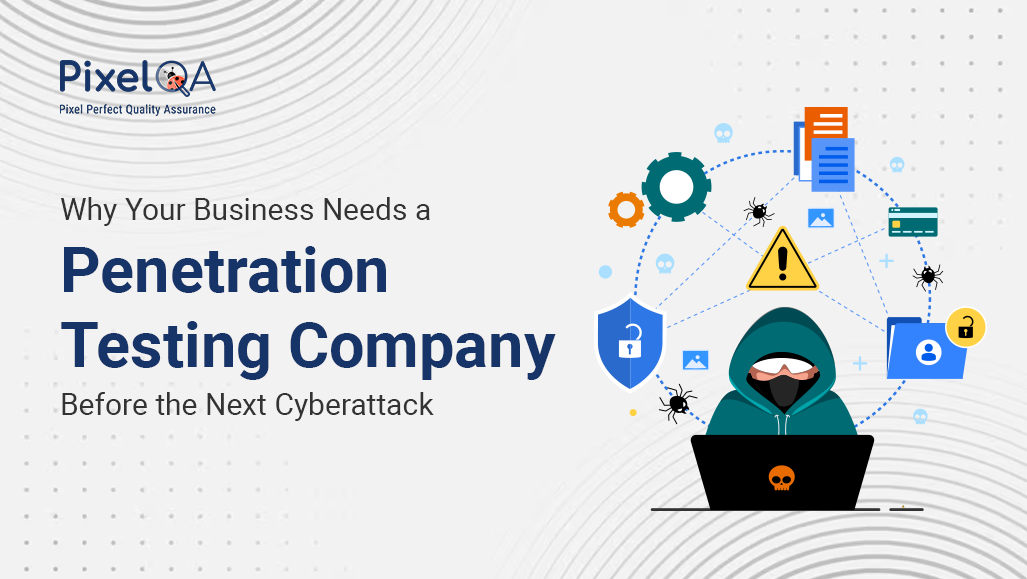
In the digital-first economy of today, companies are constantly subject to an ever-changing threat landscape. From zero-day attacks to sophisticated phishing efforts, the ways that cybercrime attackers operate are becoming increasingly sophisticated by the day. Even with heightened awareness, most companies still proceed with a false sense of security, thinking basic cybersecurity protocols will suffice. This is a risky bet. The truth is you won't be aware of where your vulnerabilities are until it's too late if you don't test and validate them proactively. That's where penetration testing services fills the gap.
What Is Penetration Testing?
Penetration testing, or "pen testing," is a simulated cyberattack on your network, applications, or systems conducted by ethical hackers. These experts attempt to uncover vulnerabilities just as a real attacker would, allowing you to identify and fix security gaps before they can be exploited. Unlike automated scans, penetration testing provides in-depth insights into your security posture.
A penetration testing company specializes in simulating real-world attacks in a controlled environment. These firms offer a variety of services, including external and internal network assessments, web application testing, and social engineering simulations, all aimed at exposing hidden weaknesses in your infrastructure.
Why Penetration Testing Is Essential
1. Find Hidden Vulnerabilities: Regardless of how effective your security stack seems, there are always potential weaknesses in every system. Misconfigured systems, out-of-date software, or forgotten access controls can all become the entry point. Penetration testers look where automated tools may not, uncovering hidden vulnerabilities before hackers do.
2. Lessen Financial and Reputational Loss: The average cost of a data breach is millions, not to mention the long-term reputational and customer-trust loss. Through proactive threat detection, businesses can avoid expensive breaches and regulatory non-compliance penalties.
3. Comply with Regulatory Requirements: Sectors such as finance, healthcare, and e-commerce have stringent regulations like GDPR, HIPAA, and PCI DSS. Most of these guidelines either suggest or require periodic penetration testing. Having a certified testing agency on your side helps your business remain in compliance and audit ready.
4. Make Your Incident Response Plan Stronger: Penetration testing offers real-life scenarios with which your current incident response procedures may be tested. It demonstrates how your staff responds to attacks and which areas can be improved, thus making your defenses stronger when a real attack takes place.
5. Invest Security Spend Well: Instead of pouring money indiscriminately into software and tools, penetration testing results provide useful insights. This enables IT executives to budget well by choosing the right areas of highest risk.
Choosing the Right Penetration Testing Company
Not all pen testing providers are created equal. When evaluating potential partners, consider the following:
- Certifications and Credentials: Ensure the company has industry-standard certifications like CREST, OSCP, or CEH. These recognitions show technical competence and ethical conduct.
- Experience in Your Industry: A company that is familiar with your regulatory landscape and threat profile can provide more meaningful and effective testing.
- Clear Reporting: The worth of penetration testing isn't only in finding vulnerabilities, but in comprehending them. Select a provider that gives detailed reports with remediation advice and transparent risk assessments.
- Post-Test Support: The ideal companies don't just vanish after providing a report. They provide follow-up consultations, retesting, and counseling so that vulnerabilities are fixed effectively.
When Should You Conduct a Pen Test?
While annual penetration testing is a common standard, there are certain events that warrant immediate testing:
- After major system upgrades or infrastructure changes
- Before launching new applications
- Following a data breach or suspicious activity
- When mandated by compliance audits
In an ideal scenario, penetration testing becomes a regular part of your cybersecurity strategy, integrated into your DevSecOps processes and risk management framework.
The Conclusion
Cyber attacks are not a matter of "if" but "when." In such a high-risk atmosphere, passive defenses are just no longer enough. A software testing company is your virtual sparring partner, assisting you in learning about your vulnerabilities and being ready for actual attacks.
Proactive testing is not merely about addressing vulnerabilities of today; it's about creating a culture of security-first that anticipates, adapts, and transforms. Whether you're a startup or global corporation, spending on penetration testing today can be the difference between business as usual and a devastating breach. Don't wait until the next cyberattack to learn where you stand. Work with a penetration testing firm and take control of your security posture today.

